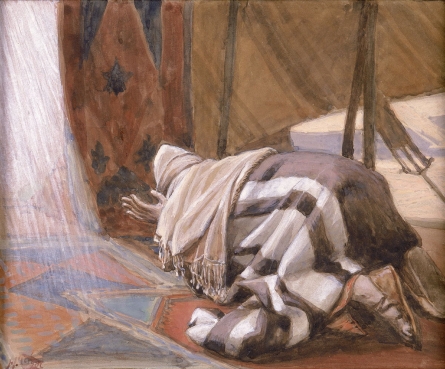I knew a wise woman once who said to me, “Never pray for patience. Because, if you do, God will send you trials.” It was one of those things that elicited a rueful chuckle. And she was a woman who would have known about such things. She had been put through, and managed to live a reasonably healthy life despite, having been subjected to electroshock treatments. No doubt it took patience to come through such stress and maintain a positive outlook on life.
I think of that often when I hear someone who admires another person’s experience. “I wish I could give Bible studies like Sister A,” I once heard someone say. Or “I wish I could pray like Brother Smith.” And sometimes it becomes biblical, as in, “Oh, to have a faith like Abraham!” When I hear such things, I always suspect the person saying it hasn’t really thought it through. How did brother Smith come to pray that way? What experiences in life contributed to the depth of his prayers? We seldom know at what cost a deep Christian experience comes. In the case of Abraham, though, we have some idea of what it cost him.
Abraham, Scripture tells us, is the “father of the faithful.” But have you ever thought exactly what that means? How does one get to be the paragon of faith? What did he have to go through?
Of course, we recite the basic facts: he left his home, the land of his birth, and went to a place he did not know, simply because the Lord asked him to. In return, the Lord promised to bless Abraham, to give him an inheritance of land, to give him as many descendants as the sands of the sea, and that all the nations of the earth would be blessed through him. We read that, we know the history that took place, and we see that Abraham was more than adequately rewarded. But what did Abraham see?
After both he and his wife Sarah reached the age of 90, they had no child. No “sands of the sea,” no children at all. True, got it promised him that his descendants would be as numerous as the sands of the sea, but in human terms — in terms of what Abraham could see — it is a promise unfulfilled. And it will remain unfulfilled, for it is impossible.
Years later, when Sarah dies, Abraham does not even own a plot of land large enough to bury her. He has to haggle and pay an exorbitant price for the cave of Macpelah, so he lay his beloved wife to rest. Once again, a promise which, in human terms, looks unfulfilled, looks impossible.
Either one of these circumstances would be enough to cause faith to fail for most of us. But neither of these come close to being the greatest test of Abraham’s faith.










